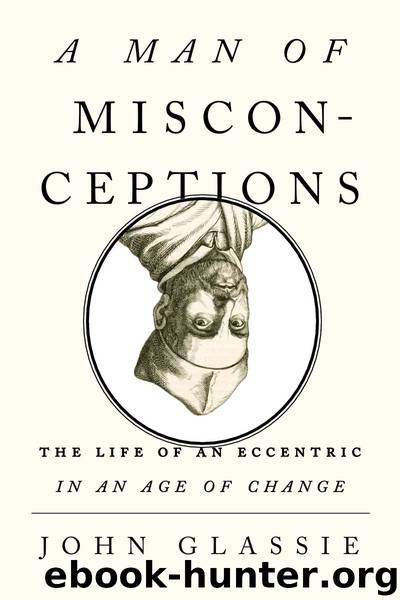Man of Misconceptions : The Life of an Eccentric in an Age of Change (9781101597033) by Glassie John

Author:Glassie, John
Language: eng
Format: epub
Publisher: Penguin USA
Published: 2012-10-17T16:00:00+00:00
15
Philosophical Transactions
Three years after the plague subsided in Rome, the Tiber flooded, having the greatest effect on the Jewish ghetto. Alexander VII spent much of his time in the Palazzo Quirinale with his wooden scale model of the streets and buildings of the city, contemplating his improvement projects. Although unenthusiastic about matters of government, he was given respect for the success of Rome’s efforts against the plague, and he had done his part in 1657 by sending the papal fleet to join Venetian ships at the Battle of the Dardanelles, part of the ongoing war with the Ottoman Empire over Crete. He’d also bowed to tradition with regard to nepotism; a little more than a year after his election his brother and nephews had gone on the payroll.
Despite Kircher’s previous output, he had only begun to become, as a twenty-first-century historian has put it, “a book-making, knowledge-regurgitating machine.” In 1658, he published Ecstatic Journey II, a precursor of a planned volume on the physical earth called Underground World that was going to take several more years to complete. In 1660, after the first major eruption of Mount Vesuvius in three decades, Kircher traveled down to Naples to investigate an apparent miracle. Crosses had mysteriously begun to appear in the folds of people’s clothes, aprons, bed linens, and other fabrics. Kircher the skeptic determined that the causes were natural, not miraculous, a result of the ash in the air—though this didn’t mean that God wasn’t responsible for them. A book on the subject naturally followed.
Also on Kircher’s agenda in the years after the plague: ingratiating himself with the new Holy Roman Emperor in Vienna. After Ferdinand III died in 1657, his seventeen-year-old son, Leopold, king of Bohemia and Hungary, succeeded him. The child of married first cousins, Leopold himself happened to be first cousins with Louis XIV of France. He was born with what became known as the Hapsburg chin—a greatly protruding jaw and almost monstrous lower lip—the result of so much inbreeding among European royalty. (His nickname: Hogmouth.) Like his father, and like other kings and queens whose subjects, peers, and family members spoke many different tongues, Leopold had a practical interest in crossing the divide of language. At the same time, because he frequently wanted to keep others from being able to read and understand his secret missives and official directives, he’d developed an interest in cryptography. For Leopold, Kircher produced both an attempt at a universal language that would allow any two parties to communicate and a system of artificial languages or codes by which only certain people could.
In fact, the possibility of a universal language was frequently discussed during the seventeenth century by the likes of Descartes, Leibniz, and many others. In the early 1650s, for example, the Englishman Francis Lodwick proposed one in a book called The Groundwork or Foundation Laid (or So Intended) for the Framing of a New Perfect Language and a Universal Common Writing. In 1657, another Englishman, Cave Beck, published his proposal
Download
This site does not store any files on its server. We only index and link to content provided by other sites. Please contact the content providers to delete copyright contents if any and email us, we'll remove relevant links or contents immediately.
| France | Germany |
| Great Britain | Greece |
| Italy | Rome |
| Russia | Spain & Portugal |
Fanny Burney by Claire Harman(26588)
Empire of the Sikhs by Patwant Singh(23064)
Out of India by Michael Foss(16838)
Leonardo da Vinci by Walter Isaacson(13300)
Small Great Things by Jodi Picoult(7108)
The Six Wives Of Henry VIII (WOMEN IN HISTORY) by Fraser Antonia(5492)
The Wind in My Hair by Masih Alinejad(5082)
A Higher Loyalty: Truth, Lies, and Leadership by James Comey(4942)
The Crown by Robert Lacey(4795)
The Lonely City by Olivia Laing(4793)
Millionaire: The Philanderer, Gambler, and Duelist Who Invented Modern Finance by Janet Gleeson(4455)
The Iron Duke by The Iron Duke(4341)
Papillon (English) by Henri Charrière(4247)
Sticky Fingers by Joe Hagan(4179)
Joan of Arc by Mary Gordon(4085)
Alive: The Story of the Andes Survivors by Piers Paul Read(4013)
Stalin by Stephen Kotkin(3949)
Aleister Crowley: The Biography by Tobias Churton(3626)
Ants Among Elephants by Sujatha Gidla(3452)
